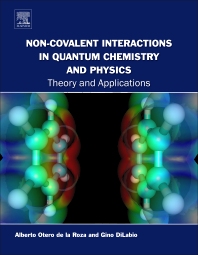Books in Interdisciplinary physics
Books in Interdisciplinary physics
- 1st Edition
- June 13, 2017
- Alberto Otero de la Roza + 1 more
- English
- Paperback9 7 8 0 1 2 8 0 9 8 3 5 6
- eBook9 7 8 0 1 2 8 0 9 8 3 6 3

Non-covalent Interactions in Quantum Chemistry and Physics
- 1st Edition
- June 9, 2017
- Yohan Payan + 1 more
- English
- Hardback9 7 8 0 1 2 8 0 4 0 0 9 6
- eBook9 7 8 0 1 2 8 0 4 0 6 0 7

Biomechanics of Living Organs
- 3rd Edition
- April 19, 2017
- James E. House
- English
- Paperback9 7 8 0 1 2 8 0 9 2 4 2 2
- eBook9 7 8 0 1 2 8 0 9 2 5 5 2

Fundamentals of Quantum Mechanics
- 1st Edition
- March 15, 2017
- Majid Ghassemi + 1 more
- English
- Paperback9 7 8 0 1 2 8 0 3 7 7 9 9
- eBook9 7 8 0 1 2 8 0 3 8 5 2 9

Nano and Bio Heat Transfer and Fluid Flow
- 1st Edition
- March 15, 2017
- Amirhossein Goharian + 2 more
- English
- Paperback9 7 8 0 1 2 8 0 4 6 3 4 0
- eBook9 7 8 0 1 2 8 0 4 7 5 8 3

Trauma Plating Systems
- 1st Edition
- December 23, 2016
- Monica S Krishnan + 2 more
- English
- Paperback9 7 8 0 1 2 8 0 3 5 2 3 8
- eBook9 7 8 0 1 2 8 0 3 5 6 1 0

Handbook of Supportive and Palliative Radiation Oncology
- 2nd Edition
- November 18, 2016
- Atsushi Ikai
- English
- Paperback9 7 8 0 4 4 4 6 3 6 8 6 7
- eBook9 7 8 0 4 4 4 6 3 6 8 7 4

The World of Nano-Biomechanics
- 1st Edition
- Volume 50
- October 31, 2016
- Jean-Claude G. Bunzli + 1 more
- English
- Hardback9 7 8 0 4 4 4 6 3 8 5 1 9
- eBook9 7 8 0 4 4 4 6 3 8 5 2 6

Handbook on the Physics and Chemistry of Rare Earths
- 1st Edition
- October 14, 2016
- Radovan Zdero
- English
- Hardback9 7 8 0 1 2 8 0 3 8 0 2 4
- eBook9 7 8 0 1 2 8 0 3 8 5 5 0

Experimental Methods in Orthopaedic Biomechanics
- 2nd Edition
- August 29, 2016
- Shijie Liu
- English
- eBook9 7 8 0 4 4 4 6 3 7 9 3 2
